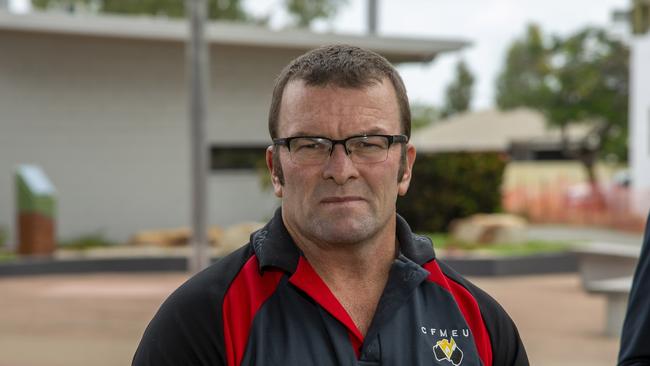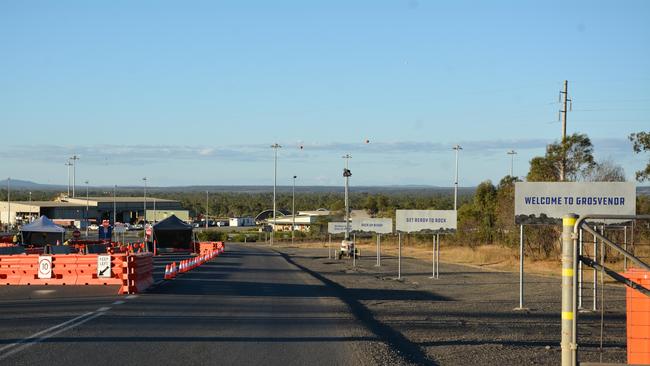Anglo American wants to go back underground at mystery blast mine
Mining giant Anglo American is pressing the Palaszczuk government to re-enter the Grosvenor coal mine, despite being unable to find what caused a methane explosion that could have killed five miners.

Mining giant Anglo American is pressing the Palaszczuk government to re-enter the Grosvenor coalmine despite being unable to find what caused a methane explosion that could have killed five miners.
But workers say they are terrified to return to underground at Anglo’s central Queensland metallurgical coalmine, under the same management that oversaw the devastating May blast and before a public inquiry into the disaster reports back.
Anglo’s senior managers at Grosvenor have claimed privilege against self-incrimination and will not give evidence at the board of inquiry after the Palaszczuk government refused to change the law to compel witnesses to testify.
Five workers were burned on May 6 when methane exploded underground at Grosvenor, near Moranbah. Four of the five suffered severe burns to their throats, lungs and faces, and are still receiving treatment and rehabilitation.
Anglo American applied to Queensland’s mines inspectorate on January 22 to re-enter the mine, which has been shut since a suspected second blast underground on June 8.
A separate application will have to be made before Anglo can start longwall mining again at Grosvenor, which the company hopes to do later this year.

But inspectors on February 12 demanded more information from Anglo about the risk of re-entry.
CFMEU district president Stephen Smyth is in regular talks with Anglo leadership and underground coalmine workers, and met 70 Grosvenor miners on Monday.
“To a man and woman, they said they are fearful to enter that mine again, when they don’t know what’s happened (to cause the explosion) and the same leadership team … that’s blown up the mine twice is still in charge,” Mr Smyth said.
“We support the reopening of the mine, but it’s got to be done safely.”
A spokesperson for Resources Safety and Health Queensland (RSHQ) said the mines inspectorate had spoken to Grosvenor about the conditions under which a re-entry could happen.
“The mines inspectorate’s decision-making is risk-based. Re-entry of the mine and restarting coalmining operations may only occur where the operator has appropriate systems and controls in place to prevent an unacceptable level of risk associated with these activities,’’ the spokesperson said.
An Anglo American spokeswoman said Grosvenor sought approval from RSHQ to re-enter the mine to “perform safety and compliance inspections, including restoring power and gas monitoring”.
“This is the next step in a number of stages before we recommence longwall mining, and we have been addressing feedback from RSHQ during this process,” she said.
Longwall 104, the area of the mine where the explosion happened, has been permanently sealed with large concrete seals.
The Anglo spokeswoman said the company believed it understood the source of the gas, but had not been able to confirm an ignition source that caused the explosion, and RSHQ had not shared its investigation findings.
“In the absence of having a confirmed ignition source, we have extensively risk assessed all potential sources and committed to a range of measures to improve our controls,” the spokeswoman said.




To join the conversation, please log in. Don't have an account? Register
Join the conversation, you are commenting as Logout